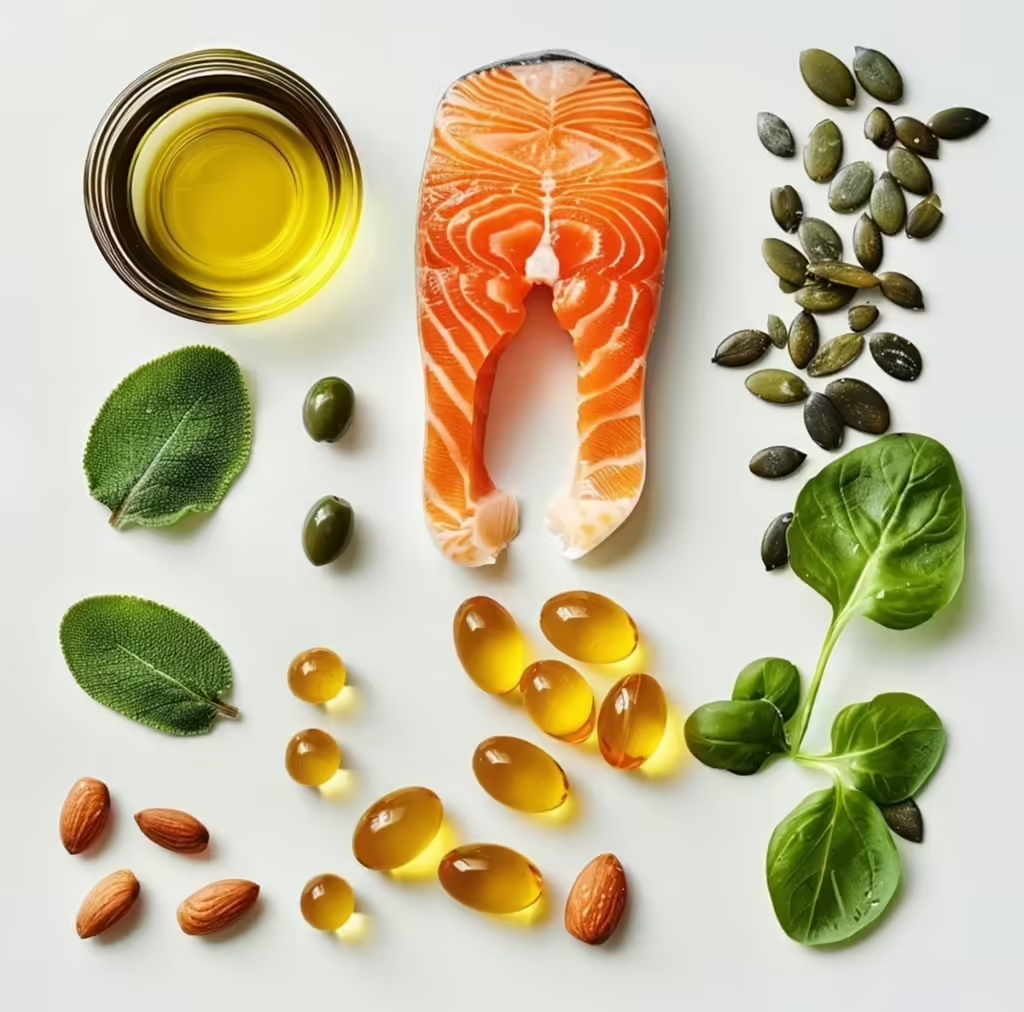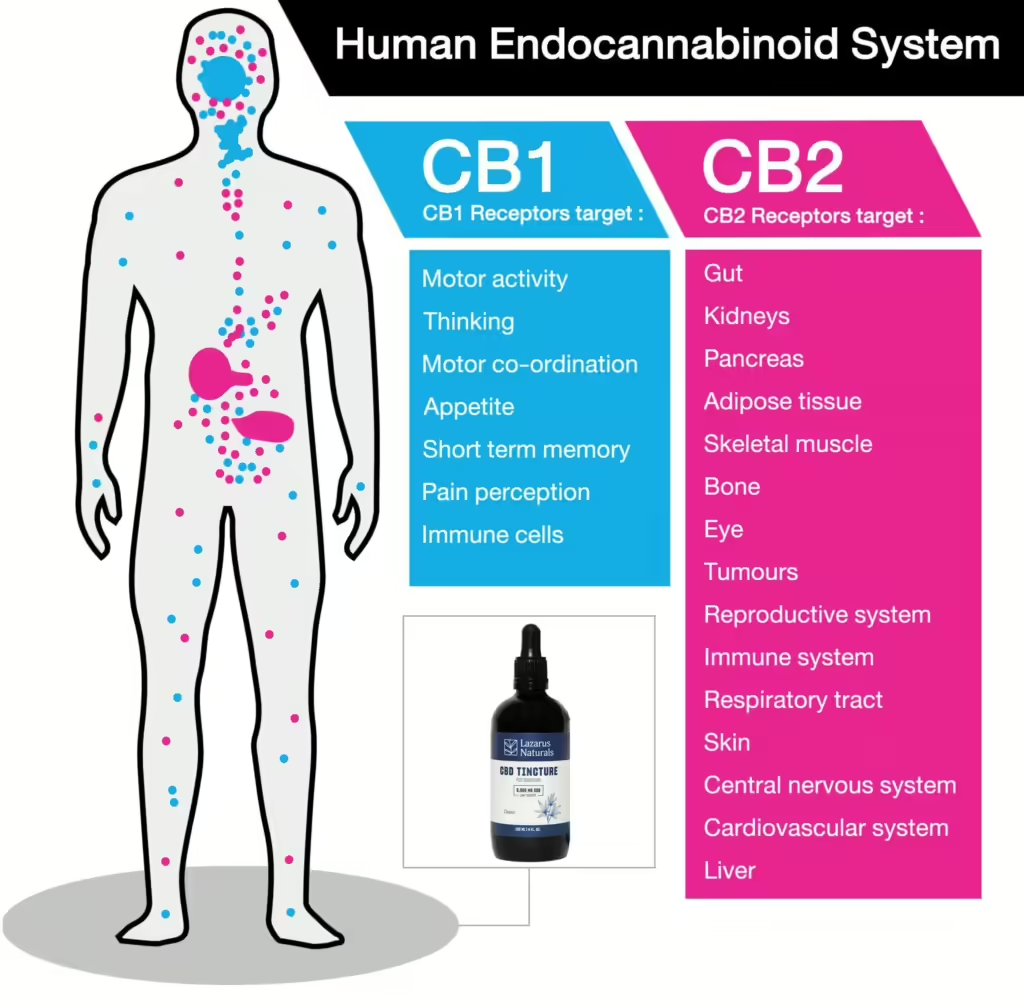Benefits of Combining Omega-3 With Your CBD
Summarize

The growing interest in natural wellness products is leading people to try combining CBD and omega-3 fatty acids. Though each compound produces positive effects on its own, the combination may enhance wellness due to synergistic potential. As research evolves, CBD and fish oil may become a prime choice for those pursuing natural wellness alternatives.

TL;DR (Too Long; Didn’t Read):
CBD and Omega 3 are natural substances that interact with the endocannabinoid system but in different ways. Each has distinct effects. Omega 3 in fish oil provides antioxidants that bolster healthy cells. Researchers have discovered that CBD also exhibits antioxidant effects. Combined, CBD and fish oil, rich in Omega-3 fatty acids, may enhance their effects through synergistic action. Moreover, fish oil acts as a carrier oil, enhancing the absorption of fat-soluble CBD into the bloodstream.
Table of Contents
What Are Omega-3 Fatty Acids?
Chances are you have heard of omega-3 fatty acids, but what are they? Essential omega-3 fatty acids are found in foods and dietary supplements. There are three main types.
1. Alpha-linolenic acid (ALA)
Your body cannot make this essential fatty acid, so it is obtained mainly from plant oils like canola and soybean.
2. Eicosapentaenoic acid (EPA)
EPA is found mostly in fish.
3. Docosahexaenoic acid (DHA)
DHA is also primarily found in fish.
Given that your body is unable to convert sufficient ALA consumed through plant oils into EPA and DHA, it becomes crucial to ensure an adequate intake of omega-3 fatty acids through other means. The National Institutes of Health implifies the importance of these fatty acids, as they play a pivotal role in the composition of cell membranes, particularly those of the eye, brain, and sperm cells. Moreover, they contribute to the health of your heart, lungs, immune system and blood vessels, underscoring their significant role in maintaining overall health and reassuring you about your health decisions.

Food and supplements are the only way to get enough omega-3 fatty acids. The best sources include the following.
- Cold water fish such as tuna and salmon
- Nuts and seeds like flaxseed and walnuts
- Plant oils like soybean oil and flaxseed oil
- Fortified foods that include eggs, soy beverages and yogurt
These foods contain polyunsaturated fats, which are healthy fats. Clinical studies have found that omega-3 fatty acids may reduce the risk of chronic diseases.
What Are Endocannabinoids?
The endocannabinoid system (ECS) regulates and controls many human functions, including discomfort and immune system responses, temperature, sleep, emotional processing and memory. The ECS is a system of chemicals and cellular receptors. The two primary receptors are CB1 and CB2. The CB1 receptors are located mainly in the central nervous, brain, and digestive systems. CB2 receptors are located primarily in the peripheral nervous system, which controls the immune system.
The ECS consists of cannabinoid receptors, endocannabinoids and enzymes responsible for synthesizing the endocannabinoids. Another name for endocannabinoids is endogenous cannabinoids, meaning the ECS naturally produces cannabinoids in your body as opposed to cannabinoids introduced from external sources like CBD extracted from the hemp plant. The effects of the endocannabinoids are the result of the endocannabinoids interacting with the cannabinoid receptors.
The job of the endocannabinoid system is to respond when your internal systems are not functioning due to a health condition or injury. It responds by manufacturing endocannabinoids, which are chemical messengers. They bind to cannabinoid receptors to trigger cellular responses intended to restore balance.
Since the receptors are distributed in the brain and throughout the body, the endocannabinoid system responses help regulate various biological responses. Researchers have found it plays a role in the following.
- Immune system
- Discomfort perception
- Sleep/wake cycle
- Tension response
- Mood
- Reproductive system
- Eating behaviors
Omega-3 and Endocannabinoid System
Researchers are discovering that omega-3 fatty acids and the endocannabinoid system are interrelated. Omega-3 fatty acids may modulate the ECS to reduce the signaling that contributes to oxidative imbalance (an imbalance of free radicals or unstable molecules and antioxidants). Too many free radicals can damage DNA and cells, accelerating aging and playing a role in the development of health conditions.
Hemp cannabinoids like CBD and THC are believed to modulate polyunsaturated omega fatty acid signaling and metabolism. This causes changes in the ECS, influencing immune functioning, metabolism, and the overall balance of the body’s systems. Research continues to better understand how nutritional interventions like taking omega-3 supplements may have positive effects on the endocannabinoid system, reducing metabolic disorders.

How Does Combining CBD with Omega-3 Maximize the Experience?
CBD (cannabidiol) from the hemp plant is a phytocannabinoid (plant-based) that interacts with but does not bind to CB1 and CB2 receptors. It does not bind to the CB1 receptors like THC, which are receptors that lead to experiencing a high. Instead, CBD blocks the CB1 receptors, which is why it does not produce a high and likely why it may lower tension. CBD also interacts with the CB2 receptors but is an agonist, reducing the immune system activity. CBD is also an antioxidant, and antioxidants protect cells from damage by free radicals.
When you combine CBD with Omega-3 fatty acids, two compounds affect the endocannabinoid system and deliver antioxidant power. In addition, CBD is an oily fat-soluble substance that is harder for your body to absorb since your body consists of mostly water. The fish oil becomes the carrier oil when combined with CBD oil in tinctures or softgels. Combining CBD and fish oil helps your body absorb more CBD, increasing its bioavailability and delivering crucial omega-3 fatty acids for healthy cells.
Combining the Power of Nature’s Elements
You could take CBD and fish oil separately, but CBD oil supplements that contain fish oil offer a convenient way to enjoy the potential effects of each natural compound. They include antioxidants that prevent free radical formation, which is associated with many health issues.
Combining omega-3 fatty acids and CBD represents a promising natural health and wellness frontier. By understanding each compound’s unique benefits and potential synergistic effects, individuals can take a more comprehensive approach to improving their overall wellness. As research evolves, this dynamic duo may become increasingly important in promoting a balanced and healthy lifestyle.
Sources
- https://ods.od.nih.gov/factsheets/Omega3FattyAcids-Consumer/
- https://ods.od.nih.gov/factsheets/Omega3FattyAcids-HealthProfessional/
- https://www.health.harvard.edu/blog/the-endocannabinoid-system-essential-and-mysterious-202108112569
- https://www.ncbi.nlm.nih.gov/pmc/articles/PMC4789136/
- DiMarzo, V. Pharmacol Res. 2009. 60(2): p. 77-84.
- https://sc.edu/uofsc/posts/2023/02/conversation_marijuana.php
- https://www.ncbi.nlm.nih.gov/pmc/articles/PMC8196941/
Share this post


0